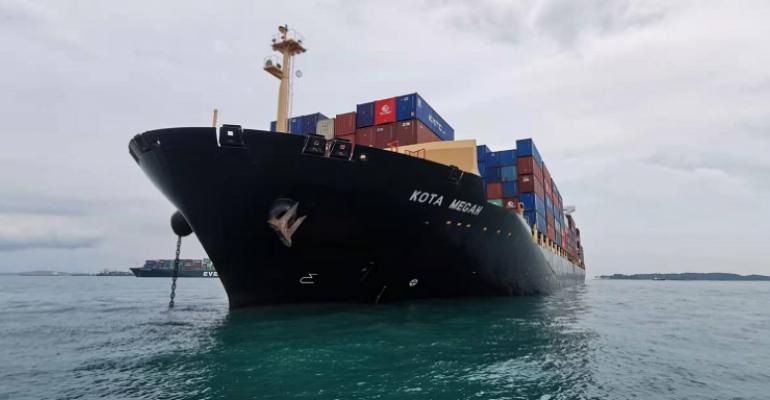In a rare example of shippers and carriers agreeing both groups said that the broader decarbonisation process was beyond their control, pointing to regulatory failures, in the case of the IMO and to the consortia regulations that are failing to create the economic conditions to see green shipping flourish.
Global Shippers’ Forum (GSF) director James Hookham said, that the GSF was encouraging companies to join organisations such as CoZEV, Cargo Owners for Zero Emission Vehicles, which promote the use of low carbon shipping through creating demand for the low carbon solutions.
Nevertheless, Eric Leveridge, Ship It Zero lead said, “CoZEV has very limited membership, and something we repeatedly urge companies to do throughout the report is to join CoZEV.”
Leveridge argues that companies on both sides of the supply chain equation must intensify their efforts to meet the climate change challenge.
“We don’t have a climate ‘problem’, we have a climate crisis. But CoZEV membership is not enough. The world is experiencing the hottest temperatures in 120,000 years, yet only a handful of companies have a decarbonisation goal of 2040, which is still 16 years away.”
John Butler, President and CEO at the World Shipping Council hit back at Leveridge and Ship It Zero claiming, “Liner shipping is already investing in renewable fuel-capable ships and has more vessels capable of operating on near-zero e-fuels on order than the combined orderbooks for all other vessel types.”
He went on to point out that, “Partnerships between carriers and their customers are important to create demand for near-zero fuels, but in addition to that we need clear technical and economic regulations from the IMO to send a signal to the energy sector to invest in the production and distribution of near-zero fuels. WSC is actively engaged at IMO to make that happen.”
Meanwhile, Hookham argued that Ship It Zero’s report cards “Score against actions that are only in the control of the carrier,” he added, “The consortium/alliance structure of the container shipping sector means it is simply not possible to buy space on a specific ship.”
GSF believes that the Ship It Zero scorecards are “arbitrary”, and he asks, “Is the scoring relative to best-in-class or an absolute score based on a scale not disclosed?”
He added that the non-participation in some industry initiatives is not necessarily a failure but could mean that some businesses have prioritised other modes of transport, and probably other sources of emissions over maritime, possibly because they can do something about these other emissions.
“Growth in emissions from one activity may occur because emissions in others have declined or stabilised. Nearly all Scope 3 emissions as a percentage of the total will have increased as Scope 1 and 2 (in-house energy measures and greening of electricity supplies) have been reduced. The first rule of stats - never believe a performance or a judgement based on percentages alone,” said Hookham.
For its part Ship It Zero claims it is not judging shippers and carriers by the same criteria, but says it is examining the same broad criteria.
“The evaluation rubrics [for shippers and carriers] are quite different. One of the criteria we used was whether they are advocating for increased investment in green ports or stronger greenhouse gas emissions reduction standards. Large companies absolutely have the power and leverage to push for change, and it is their responsibility to do so,” claimed Leveridge.
As such the aim of the environmentalist organisations and the report cards, “Is not to name and shame particular companies, but to sound the alarm and urge companies to take bold action so that there are still markets within which they can operate.”
Butler conceded that there is still a lot of work to be done, “We look forward to continuing our work with customers and all parties in the maritime supply chain to decarbonise quickly and efficiently,” he said.
Copyright © 2024. All rights reserved. Seatrade, a trading name of Informa Markets (UK) Limited.
Add Seatrade Maritime News to your Google News feed.  |

